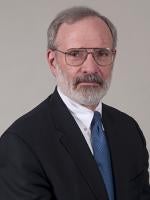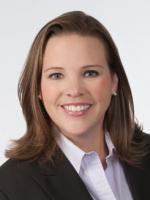A law firm hired to pursue a nonjudicial foreclosure under Colorado law was not a "debt collector" under the Fair Debt Collection Practices Act (FDCPA), the U.S. Supreme Court ruled unanimously today in Obduskey v. McCarthy & Holthus LLP. The decision, however, expressly leaves open the question of whether the FDCPA applies to judicial foreclosures.
The FDCPA defines a "debt collector" as "any person…in any business the principal purpose of which is the collection of any debts, or who regularly collects or attempts to collect, directly or indirectly, debts owed or asserted to be owed or due another." It also provides that "[f]or the purpose of section 1692(f) of this title, [the] term [debt collector] also includes any person…in any business the principal purpose of which is the enforcement of security interests." Section 1692(f) prohibits a "debt collector" from taking nonjudicial action to effect dispossession or disablement of property under specified circumstances.
In Obduskey, the U.S. Court of Appeals for the 10th Circuit ruled that the law firm was not a "debt collector" under the FDCPA because a nonjudicial foreclosure does not automatically result in the right to collect a deficiency judgment against the mortgagor and was, therefore, not an attempt to collect a debt. Contrary to this analysis, the U.S. Courts of Appeals for the Fourth, Fifth, and Sixth Circuits held that the FDCPA applies to nonjudicial foreclosure proceedings because every foreclosure action is undertaken for the purpose of obtaining payment on the underlying debt.
As an initial matter, the Supreme Court was unwilling to distinguish between direct and indirect attempts to collect a debt for purposes of applying the FDCPA's "debt collector" definition. It observed that "even if nonjudicial foreclosure were not a direct attempt to collect a debt, because it aims to collect on a consumer's obligation by way of enforcing a security interest, it would be an indirect attempt to collect a debt." (emphasis provided)
Instead, the Court based its decision primarily on the language in the FDCPA's debt collector definition that states for purposes of section 1692(f), a "debt collector" also includes those engaged in the enforcement of security interests. According to the Court, this language was a "serious, indeed an insurmountable, obstacle to subjecting [the law firm] to the main coverage of the Act." In the Court's view, "giving effect to every word [of this language] narrows the [broader definition of debt collector] so that the debt-collector-related prohibitions of the FDCPA (with the exception of § 1692f(6)) do not apply to those who, like [the law firm], are engaged in no more than security-interest enforcement." (emphasis provided)
The Supreme Court gave two additional considerations that supported its conclusion. First, the Court found it possible that Congress may have chosen to treat the enforcement of security interests differently from "ordinary debt collection" to "avoid conflicts with state nonjudicial foreclosure schemes." Second, the Court found support in the FDCPA's legislative history, observing that the FDCPA's present language appeared to have "all the earmarks of a compromise" between one version of the FDCPA that would have expressly included as a "debt collector" those principally engaged in the enforcement of security interests and another version that would have totally excluded such persons from the "debt collector" definition.
As support for its position, the plaintiff pointed to the FDCPA's venue provision, which requires a "debt collector" who brings a legal action on a debt against a consumer to "enforce an interest in real property securing the consumer′s obligation" to bring such action in the judicial district where the property is located. The plaintiff argued that since this provision made clear that a person who judicially enforces a real property-related security interest is a debt collector, someone who nonjudicially enforces such an interest must also be a debt collector. After commenting that the venue provision had no direct application to the case because it involves nonjudicial foreclosure, the Supreme Court stated "whether those who judicially enforce mortgages fall within the scope of the primary definition [of a debt collector] is a question we can leave for another day."






 />i
/>i

